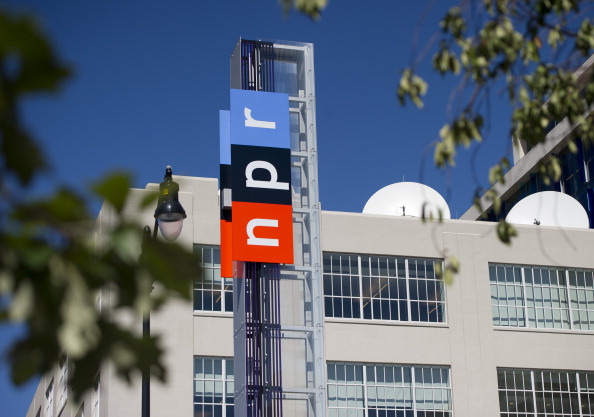NPR quits Twitter following 'state-affiliated' label, says it 'undermines our credibility'


A free daily email with the biggest news stories of the day – and the best features from TheWeek.com
You are now subscribed
Your newsletter sign-up was successful
National Public Radio (NPR) said Wednesday it would no longer use Twitter, days after the Elon Musk-helmed social media company falsely labeled it as "U.S. state-affiliated media."
Twitter branded NPR's main account with this label on April 5, and The Associated Press noted that the term is "used to identify media outlets controlled or heavily influenced by authoritarian governments, such as Russia and China." Twitter has since backtracked a bit and changed NPR's label to "government-funded media."
However, NPR said in a statement that it "will no longer actively maintain its flagship Twitter (@NPR) or any other official NPR accounts, and we are officially deemphasizing Twitter across the organization." The company added that it had sent requests to Twitter asking the "government-funded media label," but has chosen to deplatform after Twitter denied these requests. NPR said that this label implies "government involvement over editorial content," and that it "is intended to call into question our editorial independence and undermine our credibility." Individual journalists with the company may decide on their own whether or not to keep using Twitter, NPR said.
The Week
Escape your echo chamber. Get the facts behind the news, plus analysis from multiple perspectives.

Sign up for The Week's Free Newsletters
From our morning news briefing to a weekly Good News Newsletter, get the best of The Week delivered directly to your inbox.
From our morning news briefing to a weekly Good News Newsletter, get the best of The Week delivered directly to your inbox.
It is true that NPR does receive some government funding, despite being a nonprofit organization. However, according to financial statements from the company, "less than one percent of NPR's annual operating budget comes in the form of grants from...federal agencies and departments." The majority of its funding, NPR says, comes from "corporate sponsorships and fees paid by NPR Member organizations to support a suite of programs, tools, and services."
Since taking over Twitter, Musk has often been at odds with journalistic outlets. "Earlier this month, he removed the blue verification mark from The New York Times' main account, after the Times publicly said it would not pay for verification," The Washington Post noted, and has previously banned reporters from the Post, Times, and Voice of America, among others.
A free daily email with the biggest news stories of the day – and the best features from TheWeek.com
Justin Klawans has worked as a staff writer at The Week since 2022. He began his career covering local news before joining Newsweek as a breaking news reporter, where he wrote about politics, national and global affairs, business, crime, sports, film, television and other news. Justin has also freelanced for outlets including Collider and United Press International.
-
 James Van Der Beek obituary: fresh-faced Dawson’s Creek star
James Van Der Beek obituary: fresh-faced Dawson’s Creek starIn The Spotlight Van Der Beek fronted one of the most successful teen dramas of the 90s – but his Dawson fame proved a double-edged sword
-
 Is Andrew’s arrest the end for the monarchy?
Is Andrew’s arrest the end for the monarchy?Today's Big Question The King has distanced the Royal Family from his disgraced brother but a ‘fit of revolutionary disgust’ could still wipe them out
-
 Quiz of The Week: 14 – 20 February
Quiz of The Week: 14 – 20 FebruaryQuiz Have you been paying attention to The Week’s news?
-
 Nobody seems surprised Wagner's Prigozhin died under suspicious circumstances
Nobody seems surprised Wagner's Prigozhin died under suspicious circumstancesSpeed Read
-
 Western mountain climbers allegedly left Pakistani porter to die on K2
Western mountain climbers allegedly left Pakistani porter to die on K2Speed Read
-
 'Circular saw blades' divide controversial Rio Grande buoys installed by Texas governor
'Circular saw blades' divide controversial Rio Grande buoys installed by Texas governorSpeed Read
-
 Los Angeles city workers stage 1-day walkout over labor conditions
Los Angeles city workers stage 1-day walkout over labor conditionsSpeed Read
-
 Mega Millions jackpot climbs to an estimated $1.55 billion
Mega Millions jackpot climbs to an estimated $1.55 billionSpeed Read
-
 Bangladesh dealing with worst dengue fever outbreak on record
Bangladesh dealing with worst dengue fever outbreak on recordSpeed Read
-
 Glacial outburst flooding in Juneau destroys homes
Glacial outburst flooding in Juneau destroys homesSpeed Read
-
 Scotland seeking 'monster hunters' to search for fabled Loch Ness creature
Scotland seeking 'monster hunters' to search for fabled Loch Ness creatureSpeed Read
